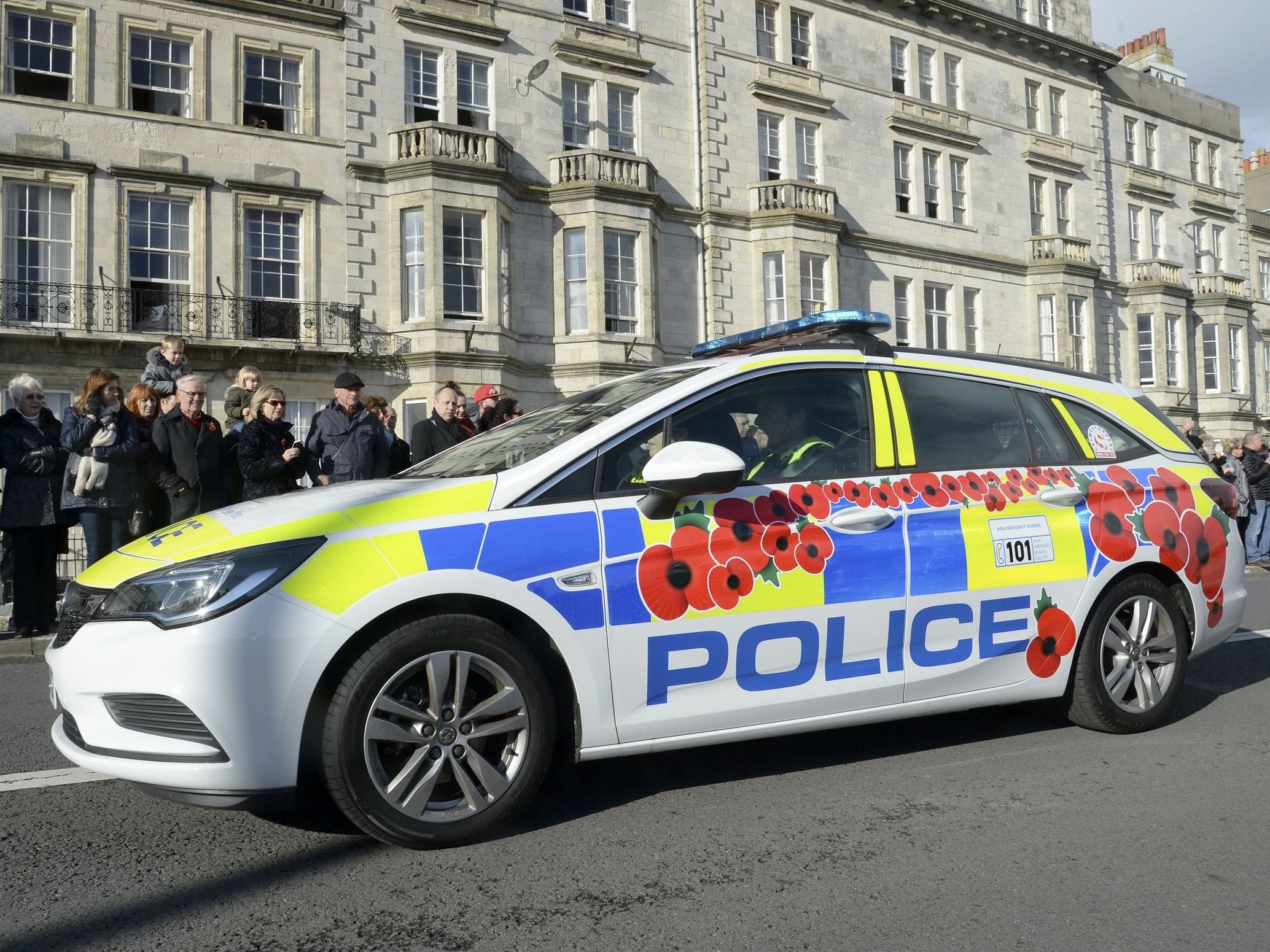How do we know it’s poppy season again? The foaming rage of war-hungry gammons – and I say that as a veteran
Every year, all we get is manufactured outrage from the poppygeddon cheerleaders. The British Transport Police’s blandly sensible decision to disallow poppies on their cars should be wholly uncontroversial. What employer lets employees stick images onto work vehicles?


It is that time of year when a vocal and presumably rather unfulfilled section of our society begin to fantasise openly that they not only fought but actually died at the Somme. I had hoped, as a modern veteran and descendant of First World War soldiers, and given this is the centenary year, Britain’s Twitter patriots might chill out for 2018 after we did so well at the football. Not so.
It is testament to the lamentable state of public debate in this country that what should be a sombre and thoughtful annual commemoration, during which we reflect on the glory-less truth of death in war, has become instead a carnival of dumb obedience where even the mildest critique is liable to be crushed under an avalanche of blood-drunk gammons.
And now the run-up to Christmas for Fascists, as I have heard it quietly but increasingly described by some veterans, has had its first two major explosions of fake outrage to get the ball rolling.
One outpouring concerns what is clearly a blandly sensible decision by the British Transport Police (BTP) to disallow poppy stickers of unknown provenance and that therefore contribute not a penny to the British Legion’s coffers – from being stuck on official police vehicles.
The other concerns the recent rejection of a rather dull, toadying and nuanced motion put by Cambridge university student Conservatives on how the Remembrance period should be marked, in favour of a rather impressive and thoughtful critique of the modern militarist tone which has come to typify it.
There is no evidence so far that the BTP decision was shaped by either some kind of resistance to British militarism – we are talking about a UK police force here not an anarchist cell – or by political correctness in any sense of that basically meaningless catch-all term.
Rather the decision appears to have been driven by the fact that the poppy decals that officers were reportedly plastering on taxpayer-funded equipment were “not official Poppy Appeal merchandise” with the BTP spokesman adding that the decision was taken over concerns “regarding where the money for these stickers was ending up”.
And yet the news saw an outpouring of the kind of annual foaming rage usually reserved for Irish footballer James McClean, who, as a Catholic from a Republican community, completely understandably doesn’t want a red poppy on his football strip. Though I’m glad to see he has been left largely alone this year.
Unmentioned, of course, was the fact that police officers already routinely wear both poppies and military awards they have earned from prior service on their official uniforms and thus have no need to deface equipment to show their support. As if any employer, public or private sector, would allow workers to stick images onto work vehicles.
Not even the military itself, among the chief promoters and stakeholders of poppygeddon, allows personnel to just start slapping random poppy stickers onto tanks, ships and helicopters.
Likewise the recent decision by Cambridge students – to reject a rather bland Tory student motion on how the First World War should be remembered – has been treated as though some great desecration had been carried out.
A brief examination of the facts suggests that those students did... what students are supposed to do: develop and flex intellectual muscle, by arguing that there should be a concerted effort to “reshape remembrance away from glorification and valorisation of war” and to focus on all the war dead and not just fallen soldiers.
What are we to make of this contempt for fact in favour of outrage? Well for one it has been far more damaging to the idea of Remembrance, a very necessary and serious event, than any amount of debate over what it should all mean and how we should mark it 100 years on. We are no longer even asked to recall. As we have seen, the main culprits for this manufactured outrage have no interest in the facts. Rather we are told to profess faith and, if we are not among the faithful, to stay quiet.



Join our commenting forum
Join thought-provoking conversations, follow other Independent readers and see their replies